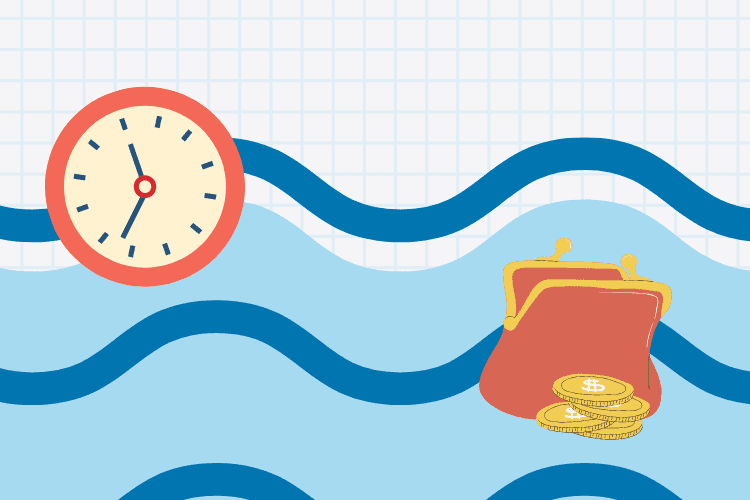The Sunk Cost Fallacy Explained

Do you consider yourself a rational decision-maker? Most of us do, but you might be surprised to realize that the sunk cost fallacy is tricking us all.
The sunk cost fallacy warps our perception of decision making based on future value or objects, investments, and experiences. Here’s what you should know about this interesting phenomenon.
What Is the Sunk Cost Fallacy?
The sunk cost fallacy is an economic concept that blends into a psychological concept as well.
First, it’s important to understand the meaning of a sunk cost. In economics, sunk costs are expenses that have already been incurred and cannot be recouped. For example, non-refundable airline tickets. Regardless of whether a passenger actually makes his flight, he cannot regain the money he spent on his tickets.
A sunk cost fallacy occurs when the sunk costs are honored, even when it’s a poor or illogical decision. Let’s use the example of non-refundable airline tickets. The sunk cost fallacy makes the passenger determined to take his flight and “get his money’s worth,” even if his plans change or he’s ill.
However, the airline tickets are already a sunk cost. The money has been spent, and taking the flight or missing the flight won’t change that. Yet most people are sensitive to sunk costs after they have made the decision to spend money on a non-essential expense, whether it’s a movie ticket or airplane flight.
How Sunk Costs Influence Our Decision Making
This fallacy deeply influences our decision-making processes, and not always for the better. In reality, a sunk cost is a sum of money paid in the past. It’s already spent, so it’s no longer relevant to current or future decisions. But that doesn’t stop us from feeling the need or obligation to honor the sunk cost by participating in whatever activity or object it purchased.
According to research, people show “a greater tendency to continue an endeavor once an investment in money, effort, or the time has been made.” Imagine that you’re on vacation and rent a jet ski. You’ve never been jet skiing before, and you discover that you don’t really enjoy the activity after all. However, you feel obligated to use the full two hours of your rental, rather than returning it early, since you already spent the money.
This is a classic example of the sunk cost fallacy at work. You’ve already paid money for the jet ski, and whether you use the entire two-hour rental period or not, the cost will remain the same. Rather than returning the jet ski early and investing that additional time into a vacation activity you enjoy, the sunk cost fallacy pushes you to spend a full two hours feeling miserable, bored, or frightened on the jet ski.
The Bottom Line
The sunk cost fallacy exists all around us. If you’ve ever finished a meal at a restaurant, simply because you paid for it, you’ve experienced it. If you’ve ever attended a movie simply because you couldn’t get a refund for your ticket, you’ve experienced it. The next time you need to make a decision on an investment that’s already paid for, consider this little-known fallacy before giving your final answer.
Read More: Budget Essentials Everyone Should Know










